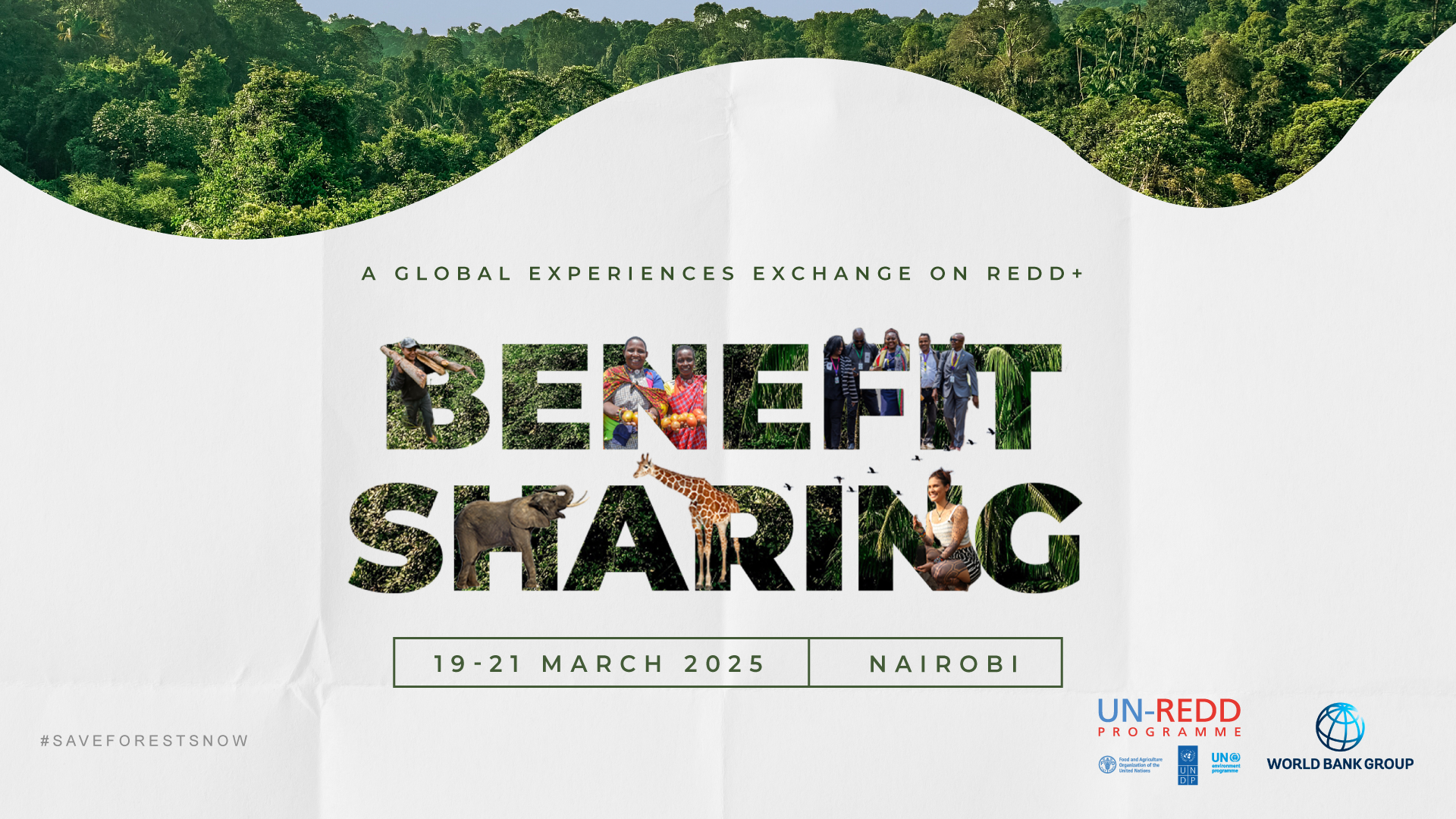A global experiences exchange on REDD+ benefit sharing

Workshop Overview
This three-day workshop is part of the UN-REDD Programme capacity-building and knowledge sharing efforts to support the effective implementation of REDD+ through systematic and targeted knowledge activities.
It builds on the REDD+ Academy’s mission to address the critical capacity needs of countries engaged in REDD+, equipping ‘REDD+ champions’ with essential skills and understanding to drive impactful climate actions. It will bring together around 35 participants from Africa, Asia Pacific and Latin American and Caribbean (LAC) countries with experience and/or challenges in BSMs.
The content and agenda build on outcomes from related Acre, Brazil and Viet Nam exchanges, and a virtual session of the Safeguards Working Group in LAC. It will enable cross-regional sharing of insights amongst experts that are engaged in the BSM field.
Objectives:
1. To exchange experiences: this exchange will facilitate an in-depth analysis of the challenges faced in implementing benefit-sharing mechanisms, allowing participants to compare approaches and frameworks from different countries. By sharing lessons learned, stakeholders can identify best practices and innovative strategies that have proven effective. The exchange will also highlight practical challenges encountered, including legal complexities, governance barriers, and financial sustainability. Through open dialogue, participants can gain insights into overcoming these obstacles while
strengthening the inclusiveness and transparency of BSMs.
2. To build roadmaps and solutions: the exchange will serve as a collaborative platform to capture diverse perspectives and co-develop actionable solutions to existing challenges. Brainstorming sessions with experts will allow stakeholders to propose new approaches to address key barriers. Participants will refine strategies to enhance community engagement, streamline financial distribution, and align BSMs with national and international policies. Ultimately, this process will lead to the development of clear, practical roadmaps that outline steps for advancing effective and sustainable BSMs.
Key themes
Prior to the event, we will identify key themes and emerging challenges, to create a space for dialogue, analysis, and solutions. The discussions will include case studies and experiences, address critical emerging challenges, and foster brainstorming on strategies to tackle them.
Among the topics that may arise for discussion are the following:
• Principles and requirements related to benefit distribution: Leveling of knowledge about the global and local principles, standards, and requirements that guide benefit-sharing mechanisms (BSM).
• Beneficiaries and benefits of BSM: Sharing allocation approaches between national and subnational levels, clarifying rights over carbon, identifying beneficiaries, defining eligibility criteria for access to benefit-sharing, including potential barriers. Discussion of the types of benefits (collective, individual, monetary, and non-monetary) and identifying opportunity costs to make incentives attractive.
• Institutional arrangements and governance: Presentation of structures for implementing the benefit-sharing mechanism with and without a financial intermediary,
as well as challenges and strategies to ensure an equitable, effective, and efficient distribution. Sharing participatory and transparent governance models and decision making flows. Coordination between national and local levels.
• Stakeholder participation: Strategies to ensure the qualified participation of different segments of society, with a focus on Indigenous Peoples, local communities,
smallholders, and other vulnerable groups in the design, implementation, and monitoring of benefit-sharing mechanisms. Measures taken to include women and youth. Sharing successful experiences and challenges in Free, Prior, and Informed Consultation (FPIC)
processes with Indigenous Peoples and local communities.
• Monitoring and Evaluation: Mapping available tools and technologies to monitor and evaluate the effectiveness, efficiency, and equity of the benefit-sharing mechanism, an its interactions with the grievance mechanism and safeguard system.
By invitation only
For more information please contact: sofia.arocha@un.org